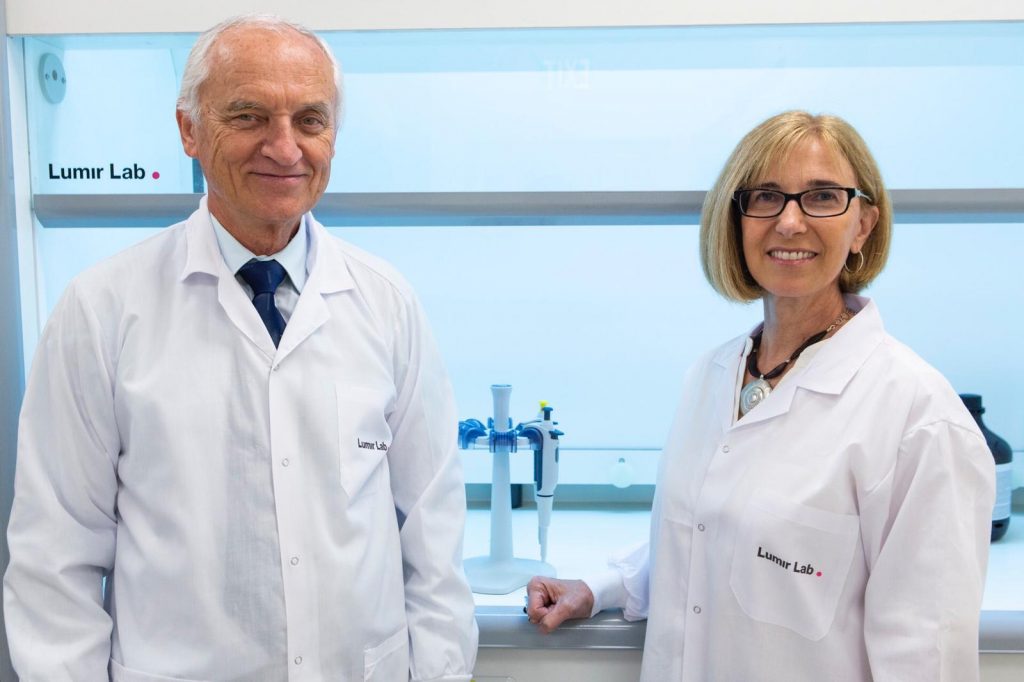The cannabis plant is one of humanity’s oldest cultivated crops and its use as medicine can be traced back nearly 5,000 years in civilizations throughout China, India, and the Middle East.
Nowadays, cannabis continues to be used for a wide range of medicinal purposes. CBD, or cannabidiol, a non-psychoactive chemical produced by the cannabis plant, is believed to comprise anti-inflammatory, anti-bacterial, and painkilling properties and its benefits have included relieving insomnia, anxiety, and nausea, and treating symptoms associated with multiple sclerosis, Parkinson’s disease, and autism spectrum disorders (ASD) in children.
Israeli researchers recently announced that they are studying the use of medical cannabis to treat endometriosis, a painful gynecological condition that affects some 176 million women worldwide and about 1 in 10 women of reproductive age. It is the second most common gynecological condition. Its exact cause is uncertain and there is no known cure.
SEE ALSO: Skin Deep: Cannabis Is The Latest ‘It’ Ingredient In Beauty Products
The disorder occurs when tissue that normally lines the uterus – the endometrium – begins to grow outside the organ. The displaced tissue becomes trapped inside the body, as it reacts as it should by thickening and then bleeding but, unlike in the uterus, it has no way out. This causes a build-up of scar tissue and adhesions which bring on a variety of symptoms, including painful menstruation and intercourse, excessive bleeding, and can even lead to infertility.
The new research into the use of cannabis to treat endometriosis is led by Jerusalem-based startup Gynica, a medical company licensed by the Israeli Health Ministry to develop cannabis-based products for the female body, in cooperation with Lumir Lab, the first and only licensed facility to research cannabis as it relates to women’s health. It is based at the Jerusalem Biotechnology Park at Hebrew University.
Gynica says current treatments for endometriosis – with painkillers and anti-inflammatory drugs – are often insufficient, as they only target the pain, not prevent it.
“Today, the ways to treat endometriosis are either surgery or medications, such as a pill that suppresses the secretion the hormones or pain-killers. Cannabis is a very different mechanism. It has several compounds that can treat multiple symptoms of the disease,” Dr. Sari Sagiv, VP of Research and Development at Gynica, tells NoCamels.
Gynica’s research in a pre-clinical study focuses on how endometriosis interacts with the endocannabinoid system, the natural cannabis-like molecules produced by the human body. This system is involved “in a wide variety of processes, including pain, memory, mood, appetite, stress, sleep, metabolism, immune function, and reproductive function,” according to a series of short articles on UCLA Health.

Gynica references the British Journal of Pharmacology to note that, after the brain, the female reproductive system is the organ with the most endocannabinoid receptors, and notes that it believes “cannabinoids are the missing piece in the treatment of gynecological disorders.”
Sign up for our free weekly newsletter
SubscribeGynica’s R&D team maintains that endometriosis is linked to a deficiency in the endocannabinoid system and that cannabinoid-based treatments may offer a new and improved solution for women who suffer from the condition.
The pre-clinical study is led by Professor Lumir Ondrej Hanus, the world-renown chemist who in 1992 isolated the first known endocannabinoid in the human brain, and for whom Lumir Lab is named. The study, Gynica says, has shown “promising results.”
A clinical trial, slated for 2020, will be led by Gynica’s principal investigator and global leading endometriosis specialist Dr. Yuval Kaufman.

Dr. Sagiv, who will run R&D on the trial, says she expects to have a validated product sometimes over the next year, with efforts currently directed towards discovering the optimal strain of cannabis for treating endometriosis. The research is supervised by Professor Moshe Hod, a world-recognized expert in the field of women’s health, president of the European Association of Perinatal Medicine (EAPM), and professor of Gynecology at the Tel Aviv University Faculty of Medicine.
“Endometriosis is a complex disease – to simply say ‘cannabis treats it’ is not enough,” she says. Gynica must find and understand the perfect combination and mixture of cannabis compounds. Once the optimal combination is found, Dr. Sagiv says a product will be released in several forms, including creams and patches.
SEE ALSO: 7 Israeli Startups Taking Medical Cannabis Into The 21st Century With Innovative, ‘Smart’ Devices
“We know cannabis helps women with endometriosis from all over the world,” Dr. Sagiv states. Gynica’s research with cannabinoids can positively affect the thousands of women who live with endometriosis.
Late last year, Gynica announced a collaboration with Lumir Lab and Canadian cannabis data and analytics startup Strainprint Technologies Ltd. to build the “largest database of the effects of cannabis on women,” with a first focus on endometriosis symptoms. Gynica used Strainprint’s proprietary digital research platform to recruit patients in Israel and Canada for its pre-clinical trial and to gather, store, and monitor patient data.
Gynica says it is also working on cannabinoid-based treatments for other gynecological disorders and conditions such as dysmenorrhea (severe period cramps) and menopause symptoms.
Related posts

Israeli Medical Technologies That Could Change The World

Harnessing Our Own Bodies For Side Effect-Free Weight Loss

Missing Protein Could Unlock Treatment For Aggressive Lung Cancer




Facebook comments